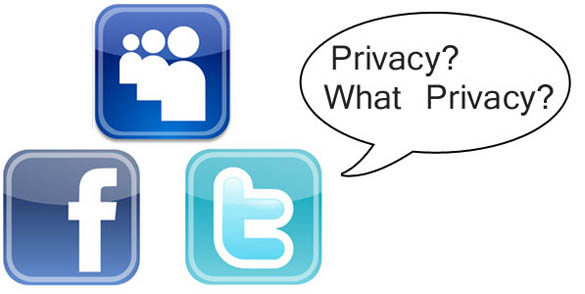As social media continues to evolve, and its use becomes more than just sharing status updates, privacy concerns continue to rage on. There were two items in the news that related to privacy, but have very different concerns and implications.
Microsoft vs the US Government
The first news item is more well known to the general public – Microsoft filed a lawsuit against the US government for violating first amendment rights. There are two pieces to their claim:
- Current law states that a consumer’s account can be viewed without communication to that person that it is being looked at, which violates Microsoft’s first amendment rights. The law states that notifying the subject of the search can put the investigation in jeopardy.
- The company claims that cloud storage, while on the internet essentially, is still considered personal storage and should be treated as such.
The company claims that personal data, including emails, is private and users should be notified before they are looked at by the government or anyone else for that matter.
Local Police Department Monitors Social Media
In other news, the Oakland Police Department came into the limelight for purchasing social media software that allows the department to monitor social media content published online in an attempt to monitor criminal/drug/gang activity, investigate potential suspects, monitor protest activity, and other similar tasks. They came under fire for a few implications of their recent purchase:
- By making this purchase without it being public knowledge, it infringes on the community’s right to privacy.
- By monitoring social content, it may make citizens wary to post on social sites, thus inhibiting their right to free speech.
- There are concerns that the monitoring will not be limited in nature, allowing law enforcement to monitor all forms of social content.
Privacy concerns from two angles – is either okay?
These are two very different matters, but neither seems overly concerning, at least in my opinion. The main difference between the two cases is that the Microsoft case focuses on private data while the Police Department story focuses on public data. Two very different things here.
As for Microsoft, I am more concerned with that as it relates to private communications; while there is nothing the government would read on my own email accounts, I am not comfortable with the idea that they can check in at any time. If I were a potential terrorist, then I believe that I lose that right to privacy. As long as this mandate is not abused, I think it’s a fair law and unfortunately Microsoft should abide by the government’s ruling to not communicate to a user that they are looking into their email communications. Again, only if it is not abused.
The police departments have a whole other issue, one that I fully support. Why? Because monitoring programs such as the one highlighted in the article are only able to capture public data – that is, social content that is posted on your site where your privacy settings are not set up properly. These types of monitoring programs cannot collect direct or private messages on social sites, and cannot capture data you post on a social site that you have set to be completely private.
This is a lesson that is taking an extremely long time to learn across the board – if you post public information, it is just that – public. It is there for the world to see, so there is no valid reason or civil liberty that is being taken away. To address the concern that if law enforcement is monitoring social media, people will feel as though they cannot freely post: I don’t believe that will ever be an issue. After all, those who are involved in illegal activity certainly aren’t too concerned with their online image or what they post, and aren’t worrying about who is monitoring. For the rest of us, we have nothing to worry about. If you’re really concerned, then it’s a good time to make sure all of your social content settings are as private as possible, and then remember that if you’re posting content on blogs, message boards or forums, it’s there for the world to see.
